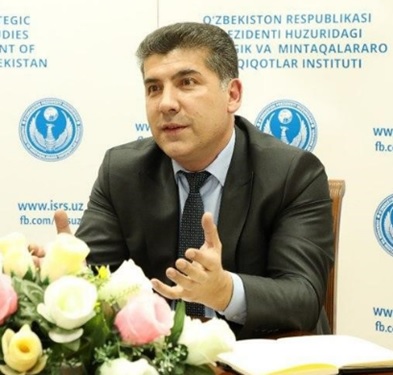ISRS hosts international conference on Afghanistan
On July 21 this year an international virtual conference on stabilizing the situation and implementation of socio-economic projects in Afghanistan took place.
The event, organized by the Institute for Strategic and Regional Studies under the President of the Republic of Uzbekistan together with the representative office of the Konrad Adenauer Foundation for Central Asia, was attended by the heads and leading experts of analytical and research centers of Germany, Pakistan, Afghanistan, Kazakhstan, Kyrgyzstan, Tajikistan and Uzbekistan.
At the conference, issues of peaceful settlement of the conflict in Afghanistan and the role of Central Asian countries in restoration of the Afghan economy were discussed.
 Opening the event, Akramjon Nematov, First Deputy Director of the Institute for Strategic and Regional Studies under the President of the Republic of Uzbekistan, emphasized that recently favorable conditions have been formed for resolving the conflict in and around Afghanistan, which serve as a solid basis for achieving long-term peace in Afghanistan.
Opening the event, Akramjon Nematov, First Deputy Director of the Institute for Strategic and Regional Studies under the President of the Republic of Uzbekistan, emphasized that recently favorable conditions have been formed for resolving the conflict in and around Afghanistan, which serve as a solid basis for achieving long-term peace in Afghanistan.First, the consensus between the regional and world powers on the principles and approaches to solving the Afghan problem has significantly strengthened, which, in turn, contributed to a qualitatively new stage and transition to the practical plane of the peace process in this country. This was also the result of the consistent implementation of the provisions of Tashkent Declaration, adopted following the international conference on Afghanistan in March 2018 in Tashkent and for the first time took a consolidated position at the global and regional levels on the need to start as soon as possible direct negotiations between the Afghan government and the Taliban.
Second, historic documents were signed – a peace agreement between the United States and the Taliban, as well as an agreement between the political leaders of Afghanistan on creation of an inclusive government and the Supreme Council for National Reconciliation, which is an important step towards an early resolution of the Afghan crisis. At the same time, the further achievement of a stable and long-term peace will depend, first of all, on involvement of all intra-Afghan political forces in the peace process. Only ensuring an inclusive political process can guarantee the achievement of national consensus in the country.
Third, thanks to the open and consistent foreign policy course of the leaders of the Central Asian countries, based on the principles of good-neighborliness and mutually beneficial cooperation, a completely new political atmosphere of mutual trust is being formed in the region. The achieved high level of consolidation of the Central Asian countries creates necessary conditions for the joint solution of urgent regional problems, favorably affects the effective promotion of sustainable development and security issues in the vast Eurasian space.
The most important condition for stabilizing the situation in Afghanistan, according to the head of the center of the Institute for Strategic and Regional Studies under the President of the Republic of Uzbekistan, Bakhtiyor Mustafayev, along with a political settlement, is development of trade-economic cooperation with Central Asian states. 

As the expert emphasized, Uzbekistan has designated the implementation of economic and infrastructure projects as a priority direction of its Afghan policy.
B. Mustafayev noted that joint transregional economic development programs will become a powerful driver for strengthening interconnection and sustainable development of Central and South Asia, can serve as a factor of forming a consensus between stakeholders on the need for long-term peace in Afghanistan.
The results of the virtual conference again indicated that the consolidation of efforts of the international community on implementing socio-economic and infrastructure projects will contribute to the early establishment of peace and stability in Afghanistan. Such a prospect is capable of transforming the long-suffering country into a place of cooperation and interaction of all the involved parties.
UzA
















